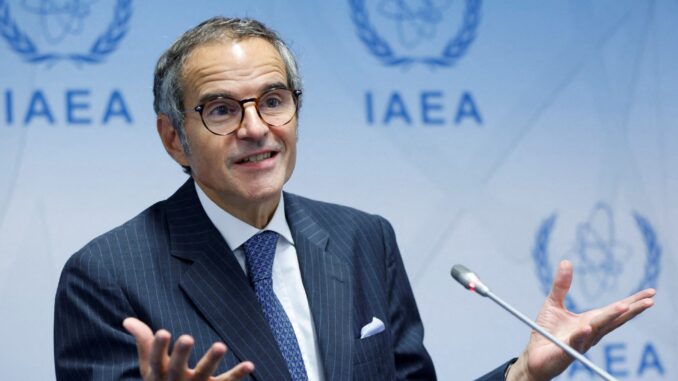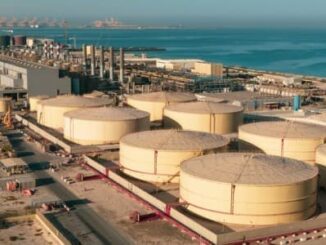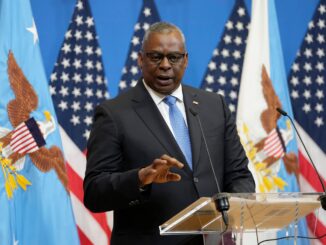
The UN nuclear watchdog has criticised Iran for effectively barring several of its most experienced inspectors from monitoring the country’s program.
International Atomic Energy Agency (IAEA) chief Rafael Grossi on Saturday condemned Iran’s “disproportionate and unprecedented” move to bar multiple inspectors assigned to the country, hindering its oversight of Tehran’s atomic activities.
Iran’s move is a response to a call led by the United States, Britain, France and Germany at the IAEA’s Board of Governors this week for Tehran to cooperate immediately with the agency on issues including explaining uranium traces found at undeclared sites.
Grossi made clear, however, that he believed Iran had overreacted.
“I strongly condemn this disproportionate and unprecedented unilateral measure which affects the normal planning and conduct of agency verification activities in Iran and openly contradicts the cooperation that should exist between the agency and Iran,” he said in a statement.
The strongly worded statement came amid longstanding tensions between Iran and the agency, which is tasked with monitoring a nuclear program that Western nations have long suspected is aimed at eventually developing a nuclear weapon. Iran insists the program is peaceful.
Iran’s move, known as “de-designation” of inspectors, is allowed; member states can generally veto inspectors assigned to visit their nuclear facilities under the nuclear Non-Proliferation Treaty (NPT) and each country’s safeguards agreement with the agency governing inspections.
But the IAEA said Tehran’s decision went beyond normal practice. It said Iran had told it that it would bar “several” inspectors, without giving a number.
“These inspectors are among the most experienced agency experts with unique knowledge in enrichment technology,” the agency said. “With today’s decision, Iran has effectively removed about one third of the core group of the agency’s most experienced inspectors designated for Iran.”
Iran’s foreign ministry linked the move to what it said was an attempt by the US and three European countries to misuse the body “for their own political purposes”. He appeared to be referring to Britain, France and Germany, which said on Thursday they would maintain sanctions on Iran related to its nuclear and ballistic missile programs.
“Iran had previously warned about the consequences of such political abuses, including the attempt to politicise the atmosphere of the agency,” foreign ministry spokesperson Nasser Kanaani said.
“Of course, Iran will continue its positive cooperation within the framework of the agreements that have been made, and emphasise the necessity of the agency’s neutrality,” he added.
A Vienna-based diplomat said Iran had de-designated all the French and German members of the IAEA inspection team. There were already no US or British members.
The Vienna-based IAEA reported earlier this month that Iran had slowed the pace at which it is enriching uranium to nearly weapons-grade levels. That was seen as a sign that Tehran was trying to ease tensions after years of strain between it and the US.
Iran and the US are negotiating a prisoner swap and the release of billions of dollars in Iranian assets frozen in South Korea.
World powers struck a deal with Tehran in 2015 under which it agreed to limit enrichment of uranium to levels necessary for nuclear power in exchange for the lifting of economic sanctions.
Then-President Donald Trump unilaterally pulled the US out of the accord in 2018, restoring crippling sanctions. Iran began breaking the terms a year later. Formal talks in Vienna to try to restart the deal collapsed in August 2022.
IAEA chief condemned Iran’s ‘disproportionate and unprecedented’ move to bar multiple inspectors assigned to the country
ENB Top News
ENB
Energy Dashboard
ENB Podcast
ENB Substack



